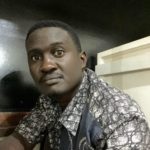One of the people whose brilliance, boldness, resolve, and charisma I really admire is the South African legendary anti-apartheid activist, Steve Biko.
He was the founder of the Black Consciousness Movement, whose purpose was to instil pride into black people who were sinking into a self-destructive inferiority complex due to years of abuse and suppression by the white minority.
It is quite challenging reading the kind of things he spoke about as an undergraduate student – deeply reflective, extensively read beyond his discipline (Medicine), incorruptibly concerned about his country, and with a high clarity of mind.
When you listen to some of our ministers and members of parliament who are way past 40 shamelessly defending the removal of age limits, and you compare them to Biko’s weight of mind in his 20s, you start querying the generality of the old Ganda saying that obukadde magezi (old age is wisdom)!
Even if it were true that their motivation is selfish gain, you would imagine that their cumulative experience would have advised them to choose better, even at great risk. Wine is said to get better the longer it stays, but some of our politicians are ageing like milk without preservatives!
Well, Biko was tortured to death in 1977 in his youth – at 30! But what he had achieved in the fight for a better South Africa at such an early age is unbelievable.
So, I asked myself how Steve Biko would have reacted to our disturbing political developments if he lived in Uganda today. I asked him questions and used ‘his own statements’ (verbatim) as compiled in the book ‘I Write What I Like’ to answer.
The context could be different, but you will find much of what he said in reaction to the Apartheid circumstances relevant.
Biko, why do you think that even with all the cries and resistance of the masses, those in power do not seem to see any point in their sentiments?
“Tradition has it that whenever a group of people has tasted the lovely fruits of wealth, security and prestige, it begins to find it more comfortable to believe in the obvious lie and accept that it alone is entitled to privilege”.
So, where do you think we should put our focus in order to bring about change?
“The type of black man [Ugandan] we have today has lost his manhood. Reduced to an obliging shell, he looks with awe at the [state] power structure and accepts what he regards as the ‘inevitable position’. Deep inside, his anger mounts at the accumulating insult, but he vents it in the wrong direction – on his fellow victims…
In the privacy of his toilet, his face twists in silent condemnation of [the wrongs] but brightens up in sheepish obedience in response to [police presence]. In the home-bound bus, he joins the chorus that roundly condemns [the regime] but is first to praise the government in the presence of the police or his employers…
All in all, the [Ugandan] has become a shell, a shadow of a man, completely defeated, drowning in his own misery, a slave, an ox bearing the yoke of oppression with sheepish timidity…
It becomes more necessary to see the truth as it is if you realise that the only vehicle for change is these people who have lost their personality.
The first step, therefore, is to make the black man [Ugandan] come to himself; to pump back life into his empty shell; to infuse him with pride and dignity, to remind him of his complicity in the crime of allowing himself to be misused and, therefore, letting evil reign supreme in the country of his birth”.
Why would such conscientisation be important, and how would it be effective in face of all the weapons at the disposal of the oppressor?
“The most potent weapon for the oppressor is the mind of the oppressed… Change the way people think and things will never be the same”.
Some religious leaders have only encouraged us to pray for God’s intervention. What do you make of such advice?
“I would like to remind the black ministry [religious leaders] and, indeed, all black people that God is not in the habit of coming down from heaven to solve people’s problems on earth”.
Don’t you think that religion should have a role in the struggle?
“… our ministers [religious leaders] are still too busy with moral trivialities. They blow these up as the most important things that Jesus had to say to people… Obviously, the only path for us now is to redefine the message in the Bible and to make it relevant to the struggling masses. The Bible must not be seen to preach that all authority is divinely instituted. It must rather preach that it is a sin to allow oneself to be oppressed”.
What message do you have for those who watch on as all this political mess happens but simply say/do nothing because they ‘hate politics’ or find no reason for doing something?
“It is people from such groups who keep on scanning the papers daily to detect any sign of the change they patiently await without working for!
… There exists among men [human beings], because they are men, a solidarity through which each shares responsibility for every injustice and every wrong committed in the world, and especially for crimes that are committed in his presence or of which he cannot be ignorant”.
But, with all your activism, aren’t you afraid of being jailed?
“If one is free at heart, no man-made chains can bind one to servitude… You are either alive and proud or you are dead, and when you are dead, you can’t care anyway”.
This article originally appeared on observer.ug






